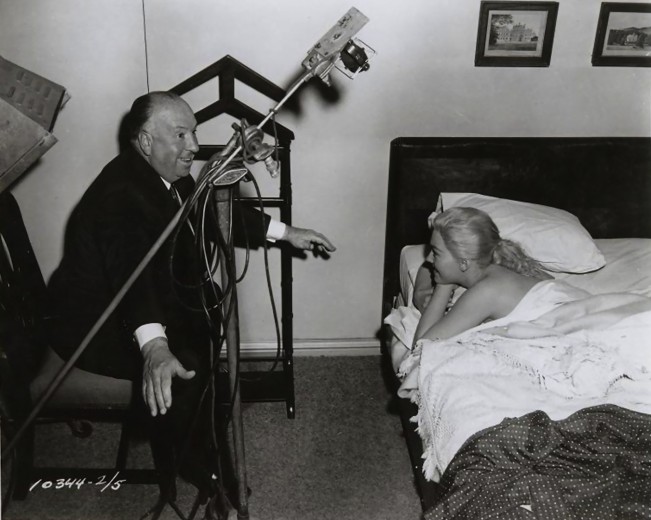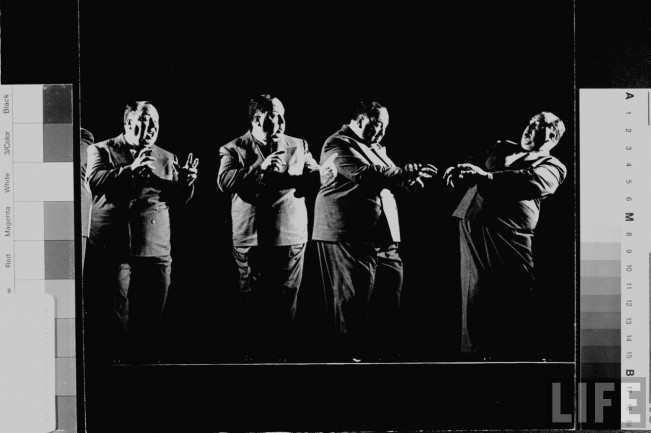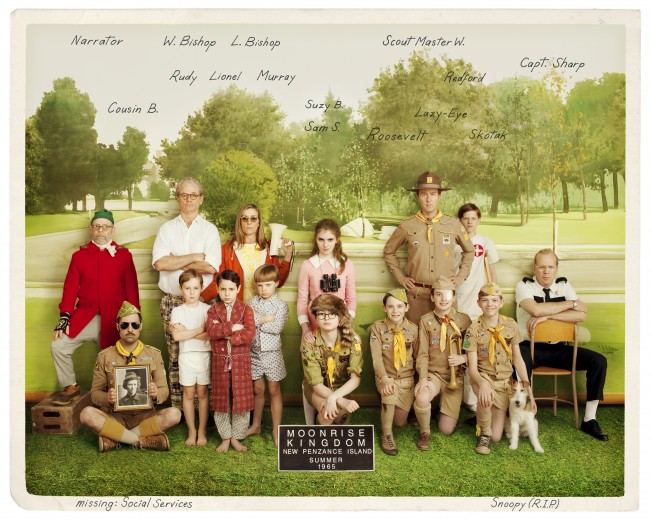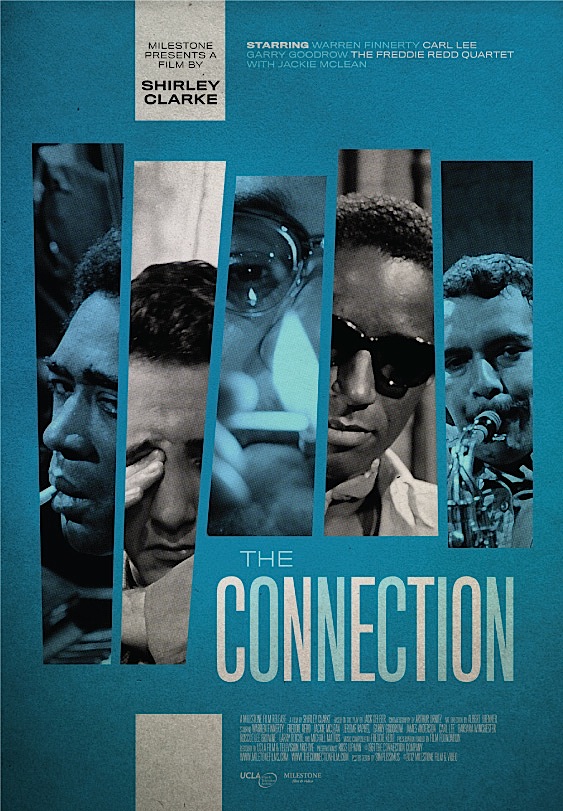Movie City Indie Archive for April, 2012
Lukas Moodysson Makes Nice With WE ARE THE BEST
Fucking Åmål meets Times Square? Ja! Rough translation from the Swedish: “A film about Bobo, Clara, and Hedwig. Three girls who are twelve or thirteen years. Who drag around on the streets and babbling. Who are brave and tough and strong and weak and confused and goofy. And are on their own way too early. Heat fish sticks in the toaster when the mother is at the pub. Start a punk rock band without instruments to play, even though everyone says that punk is dead.
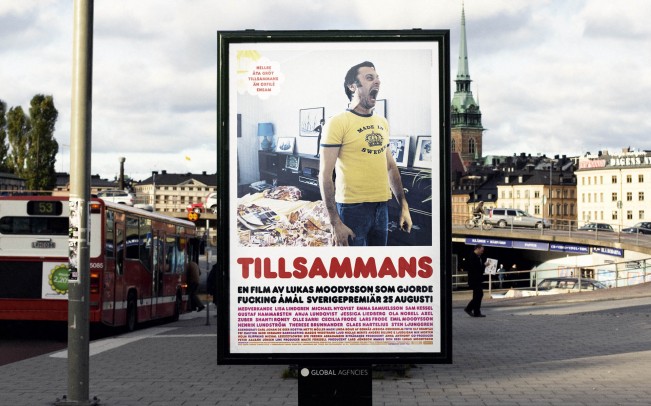 If being different and of a friendship that is greater than everything else.
If being different and of a friendship that is greater than everything else.
A movie with lots of music and a lot of humor and very serious. – I hope there will be a happy film, full of hope and vitality, says Lukas Moodysson.
Coco Moodysson has written comic book “Never bedtime,” which is the basis for the story. Lukas Moodysson has adapted. Shooting is planned for autumn 2012, with a fall 2013 release.” [Image source.]
Oscar Real-Time Calculates Most Expensive On-Screen Role Ever (1’14”)
Hitch and Kim Novak on the set of VERTIGO
What’s wrong with the color?!
Lena Dunham’s First Short, PRESSURE (4’01”)
[Via Criterion.]
“Post-War Blues”: Canucks Remake DR. STRANGELOVE…
Video for the song, “Post-War Blues.” Directed by Kevin Eastwood. With Tom Butler, Kevin MacDonald, Kirsten Slenning, Raphael Kepinski, Sam Domik and Don McKellar as Dr. Strangelove.
Topic A with James Urbaniak – Ep. 3: “Millennials”
James investigates the twentysomethings with Generation Y representative Alison Agosti.
Chris Nolan Goes Photochemical In DGA Quarterly Interview
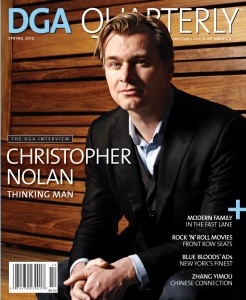 Alongside Gendy Alimurung‘s LA WEEKLY cover story, “Movie Studios Are Forcing Hollywood to Abandon 35mm Film. But the Consequences of Going Digital Are Vast, and Troubling,” the DGA Quarterly cover-stories an extensive interview with Christopher Nolan on matters digital and photochemical. “For the last 10 years, I’ve felt increasing pressure to stop shooting film and start shooting video, but I’ve never understood why. It’s cheaper to work on film, it’s far better looking, it’s the technology that’s been known and understood for a hundred years, and it’s extremely reliable. I think, truthfully, it boils down to the economic interest of manufacturers and [a production] industry that makes more money through change rather than through maintaining the status quo. We save a lot of money shooting on film and projecting film and not doing digital intermediates. In fact, I’ve never done a digital intermediate. Photochemically, you can time film with a good timer in three or four passes, which takes about twelve to fourteen hours as opposed to seven or eight weeks in a DI suite. That’s the way everyone was doing it ten years ago, and I’ve just carried on making films in the way that works best and waiting until there’s a good reason to change. But I haven’t seen that reason yet. I’ve kept my mouth shut about this for a long time and it’s fine that everyone has a choice, but for me the choice is in real danger of disappearing. So right before Christmas I brought some filmmakers together and showed them the prologue for The Dark Knight Rises that we shot on IMAX film, then cut from the original negative and printed. I wanted to give them a chance to see the potential, because I think IMAX is the best film format that was ever invented. It’s the gold standard and what any other technology has to match up to, but none have, in my opinion. The message I wanted to put out there was that no one is taking anyone’s digital cameras away. But if we want film to continue as an option, and someone is working on a big studio movie with the resources and the power to insist [on] film, they should say so. I felt as if I didn’t say anything, and then we started to lose that option, it would be a shame. When I look at a digitally acquired and projected image, it looks inferior against an original negative anamorphic print or an IMAX one.” [Much more at the link.]
Alongside Gendy Alimurung‘s LA WEEKLY cover story, “Movie Studios Are Forcing Hollywood to Abandon 35mm Film. But the Consequences of Going Digital Are Vast, and Troubling,” the DGA Quarterly cover-stories an extensive interview with Christopher Nolan on matters digital and photochemical. “For the last 10 years, I’ve felt increasing pressure to stop shooting film and start shooting video, but I’ve never understood why. It’s cheaper to work on film, it’s far better looking, it’s the technology that’s been known and understood for a hundred years, and it’s extremely reliable. I think, truthfully, it boils down to the economic interest of manufacturers and [a production] industry that makes more money through change rather than through maintaining the status quo. We save a lot of money shooting on film and projecting film and not doing digital intermediates. In fact, I’ve never done a digital intermediate. Photochemically, you can time film with a good timer in three or four passes, which takes about twelve to fourteen hours as opposed to seven or eight weeks in a DI suite. That’s the way everyone was doing it ten years ago, and I’ve just carried on making films in the way that works best and waiting until there’s a good reason to change. But I haven’t seen that reason yet. I’ve kept my mouth shut about this for a long time and it’s fine that everyone has a choice, but for me the choice is in real danger of disappearing. So right before Christmas I brought some filmmakers together and showed them the prologue for The Dark Knight Rises that we shot on IMAX film, then cut from the original negative and printed. I wanted to give them a chance to see the potential, because I think IMAX is the best film format that was ever invented. It’s the gold standard and what any other technology has to match up to, but none have, in my opinion. The message I wanted to put out there was that no one is taking anyone’s digital cameras away. But if we want film to continue as an option, and someone is working on a big studio movie with the resources and the power to insist [on] film, they should say so. I felt as if I didn’t say anything, and then we started to lose that option, it would be a shame. When I look at a digitally acquired and projected image, it looks inferior against an original negative anamorphic print or an IMAX one.” [Much more at the link.]
Hitchcock directs SHADOW OF A DOUBT under stroboscope
[Retronaut.]
A Team Photo For MOONRISE KINGDOM
[Click twice for largest image.]
Mark Frauenfelder Talks To Dan Clowes About “Modern Cartoonist” (49’32”)
Good talk. Good book. Impressively designed book. (I wrote one of the essays, about Clowes’ “David Boring” and its relation to film and how we construct our personal cultural memory.)
Ze Frank’s “An Invocation For Beginnings” (3’01”)
“My courage is a wild dog…” Ze Frank‘s most emphatic call to self. [More.]
April 9’s Eadweard J. Muybridge Animated Google Doodle
Mike Wallace Interviews… Rod Serling, Frost/Nixon, Ayn Rand, Frank Lloyd Wright, Jean Seberg, Dali…
And also Frank Lloyd Wright, Salvador Dali, Jean Seberg, Aldous Huxley and Ben Hecht (transcript only). (And many more from the Harry Ransom Collection at University of Texas Austin.)
With Mr. Hecht:
WALLACE: When you say – you talk about almost as good as keeping you young body – do you mind very much growing old Ben?
HECHT: It’s horrid – sorry to say everybody grows old and you’ll answer that question yourself some day. But we already experienced….
WALLACE: We’ve interviewed other older people… Older than you … Eleanor Roosevelt, Frank Lloyd Wright…. They don’t seem to mind the passage of the years because all of their adult lives, they have been engaged in meaningful work – work which they still do. It … could it be that you engaged in mostly carefree, adolescent work … like writing for Hollywood still … and therefore old age comes as something of a menace to you?
HECHT: No … I haven’t engaged in meaningless work… I’ve written about eight books in the last eight years which I personally like very much … and people who say they don’t mind growing old are just telling sad little lies to you… everybody minds growing old … and when I look back, I don’t only see my youth, as better, my bankbook was better, everything about me was better, and work was easier … you ask any prizefighter whether he minds growing old, … everybody loses the punch sort of, and the people who thin they’re doing important work … Mrs. Roosevelt has been repeating herself like some parrot with three clichés – for the past fifteen years. I don’t’ regard anything she’s been doing as important. I don’t know who else you mentioned, but …..
WALLACE: Frank Lloyd Wright.
HECHT: Frank Lloyd Wright.
WALLACE: No parrot he.
HECHT: No, Frank Lloyd Wright stopped working about twenty years ago. I don’t think he’s drawn a picture in twenty years. He’s been exercising charm and civilization.
Milestone Films Posters Shirley Clarke’s THE CONNECTION
The Connection opens May 4 at the IFC Center. Writes Milestone Films, “Set to the propulsive music of jazz greats Freddie Redd and Jackie McLean (who appear in the film), THE CONNECTION is one of the most vital and fascinating of all American independent films. Created by a woman director working outside the Hollywood tradition, the film fearlessly shattered stereotypes and even questioned the filmmaking process itself. Yet for many years, it was virtually unseen.
“A dynamic member of the postwar independent film movement, Clarke was one of the first filmmakers — and the only woman — to sign the New American Cinema manifesto in 1961. For her debut feature, she decided to take on a controversial off-Broadway play by Jack Gelber. “The Connection” was a complicated and challenging theater piece — a play within a play, within a jazz session. It featured a group of heroin addicts (some of them musicians) waiting around in a grungy New York loft for their drug connection to arrive. Meanwhile, a theatrical producer and writer intent on putting on an “authentic” play, are hanging out with and studying the strung-out junkies. Throughout the play, brilliant Beat dialogue alternated with cool jazz.
“Clarke changed the character of the playwright into a preppy young filmmaker out to make a name for himself by documenting the “scene.” Clarke, who was friends with many of the new cinéma vérité documentarians, added a level of humor by satirizing the earnestness and professed purity of that genre. Keeping the play’s one-set location (re-created in grungy and brilliant detail by future five-time Oscar®-nominated art director Albert Brenner), Clarke set her camera free to swirl, swoop and move to the rhythms of the film’s cool jazz score. When it premiered at the Cannes International Film Festival in 1961, the edgy, exciting and kinetic film was acclaimed a masterpiece.
“Although Clarke had fully embraced the avant-garde nature of Gelber’s play, she was unprepared for the furor her film version would raise. In Hollywood films, addicts were usually “good men gone bad” or crazed “dope fiends.” In contrast, the junkies in THE CONNECTION are vulgar, funny, erudite, talented and unapologetic. They speak about heroin with enthusiasm, and refer to it as “shit.” And it was this four-letter word that helped put the film on the censors’ radar.
“Cinephiles encountering UCLA Film & Television Archive’s sparkling restoration will be astonished by the image and sound quality. Arthur Ornitz’s black-and-white cinematography lushly glows and the great jazz of pianist Redd and saxophone legend McLean grooves, making THE CONNECTION’s rediscovery one of the cinema events of the year!
“THE CONNECTION is the first release in Milestone’s ambitious four-years-in-the-making PROJECT SHIRLEY — to acquire and bring out the films of Shirley Clarke. Although there are more than 100 monographs, books and DVDs devoted to the works of contemporaries like John Cassavetes, Stan Brakhage and Andy Warhol; there is not one entirely dedicated to the life or works of Clarke. Milestone has acquired the rights to four of Clarke’s features and more than a dozen of her short films and will be working with the archives to bring out restored versions over the course of the next year. Next on the list, ORNETTE: MADE IN AMERICA, will be premiering this August at the IFC Center.”
Learn The Dippy Dance From DAMSELS IN DISTRESS: Do The “Sambola”
“Performed by: Silverlake Ballet; Filmed by: Oliver Riley-Smith; Music: The Sambola! International Dance Craze – Jeff Young and the World Sambola Chorus” [Via HotBlog commenter Brian Street.]





